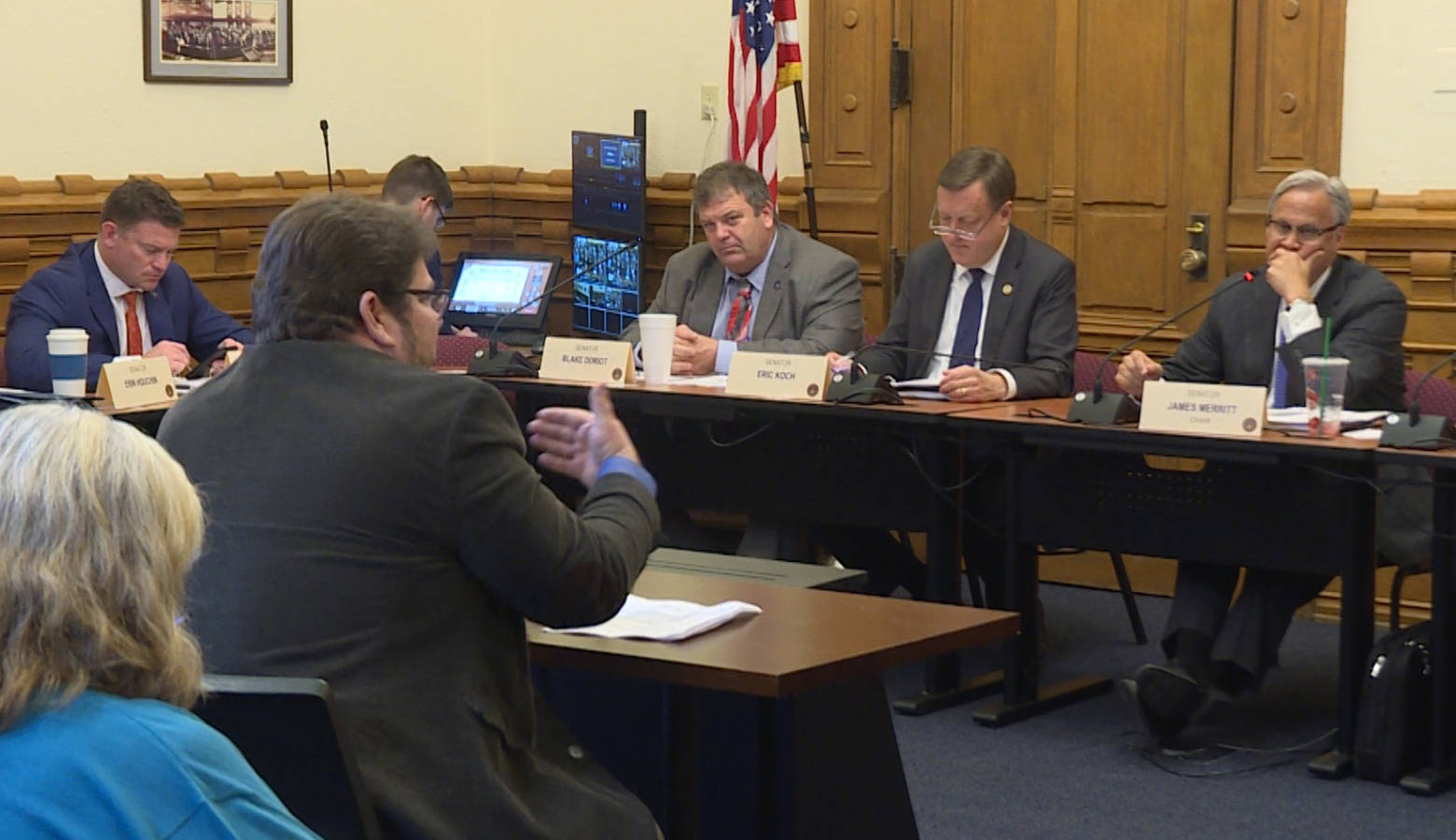Utility Legislation: Upgrading Infrastructure Or ‘Blank Check’

A controversial bill moving through the state Senate would make changes to a law that lets utilities more quickly recover the costs of certain projects from ratepayers. It involves the Transmission, Distribution, and Storage Improvement Charge or TDSIC.
TDSIC allows utilities to recover the costs of a few infrastructure projects from ratepayers every year — instead of several projects in one big rate case. Even the law that put TDSIC in place is controversial and was even the subject of an Indiana Supreme Court case.
Indiana Energy Association President Mark Maassel says utilities need that money to replace World War II era infrastructure that’s now reaching the end of its life.
“The utilities are seeing a real increase in the need to address the infrastructure to ensure that we have electric reliability,” he says.
But Maassel says it’s hard to know specifics, like which utility poles will need to be replaced in the coming years. The bill lets utilities give more vague descriptions, which allows them more flexibility.
But opponents say that could also allow utilities to raise customer’s rates without having to consider cost cutting measures at the same time.
“We call it a blank check because it eliminates any planning requirements on the part of the utility,” says Kerwin Olson, executive director of the Citizens Action Coalition.
Olson says the bill also doesn’t provide assistance for low-income customers and there would be fewer opportunities for the public to comment. The bill’s author, Rep. Ed Soliday (R-Valparaiso), says the bill wouldn’t require field hearings but the public would still be allowed to comment on TDSICs.
The bill also allows utilities to rescind their TDSIC and file a new one.
The Senate Utilities committee did not take a vote on the bill on Thursday, but plans to take up the issue again at its next meeting.
Indiana Environmental reporting is supported by the Environmental Resilience Institute, an Indiana University Grand Challenge project developing Indiana-specific projections and informed responses to problems of environmental change.

